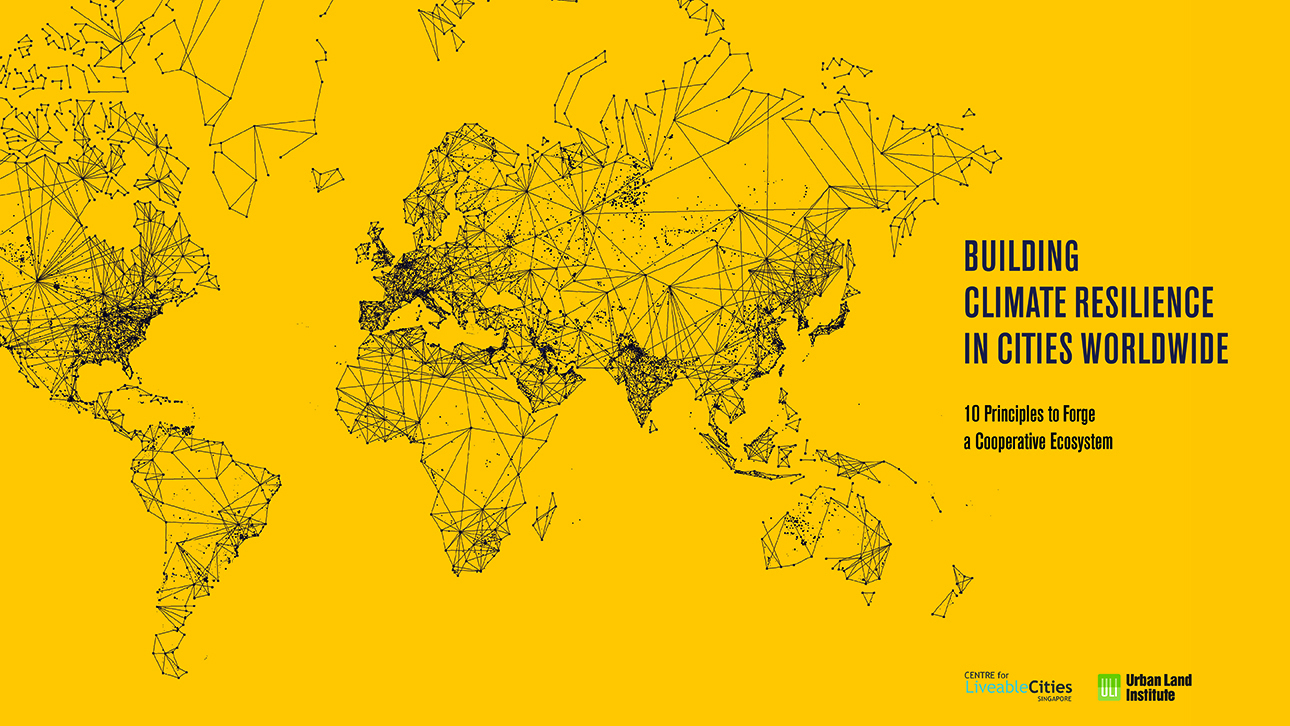Building Climate Resilience in Cities Worldwide

10 Principles to Forge a Cooperative Ecosystem
Report Summary: Cities everywhere are facing mounting physical, social, and economic challenges from climate risks – especially coastal cities, which are highly vulnerable to sea-level rise and flooding. Building resilience to these impacts will require cooperation and partnership between all sectors – public, private, non-profit, and academic. Building Climate Resilience in Cities Worldwide: 10 Principles to Forge a Cooperative Ecosystem aims to facilitate that process by sharing international examples of collaborative resilience-building and synthesizing lessons transferable to any city, based on local contexts and risks. Led by the Singapore Ministry of National Development’s Centre for Liveable Cities, this book’s insights and 10 Principles were developed through input gathered through workshops, focus groups, and interviews held with resilience experts in Singapore, Hong Kong, Rotterdam, New York, and Miami. In addition to supporting the Principles, the book also profiles each of those cities’ resilience strategies and practices as case studies. Both municipal and business perspectives (including real estate, banking and finance, insurance, etc.) are addressed, with an eye toward mobilizing funding and governance structures to effectively support climate resilience.
Sponsors & Partners
 Centre for Liveable Cities
Research Partner
Centre for Liveable Cities
Research Partner
 City Developments Limited
Sponsor
City Developments Limited
Sponsor


